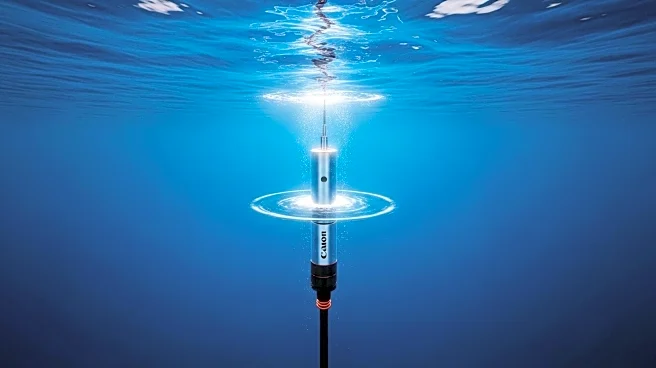What is the story about?
What's Happening?
Finnish prosecutors are appealing a court decision that halted the trial of three officers from the tanker Eagle S, accused of severing Finnish-owned subsea cables in the Baltic Sea. The lower court ruled that Finland lacks jurisdiction over incidents occurring in its exclusive economic zone, asserting that jurisdiction belongs to the seafarers' state of citizenship or the flag state, which in this case is the Cook Islands. The Cook Islands registry, known for its permissive policies, has not taken action against Eagle S. The court's decision obligates Finland to cover the defendants' legal fees, amounting to approximately $200,000, and the shipowner is contemplating a civil suit against Finnish authorities for the vessel's diversion and detention.
Why It's Important?
This case highlights potential loopholes in international maritime law, particularly concerning jurisdiction over subsea infrastructure sabotage. The ruling suggests that countries may be powerless to prosecute such acts if the flag state does not cooperate, raising concerns about the security of critical infrastructure in international waters. The decision could embolden entities to exploit these legal gaps, potentially leading to increased incidents of sabotage without accountability. Maritime legal experts warn that this could undermine the integrity of international maritime law and pose risks to global shipping and communication networks.
What's Next?
The appeal by Finnish prosecutors could lead to a reassessment of jurisdictional rules under the UN Convention on the Law of the Sea. If successful, it may prompt changes in how international waters are governed, particularly regarding the protection of subsea infrastructure. The outcome could influence future legal frameworks and encourage stricter regulations on open registries like the Cook Islands. Stakeholders, including maritime authorities and international legal bodies, may push for reforms to close these loopholes and enhance security measures.
Beyond the Headlines
The case underscores the ethical and legal challenges in balancing freedom of navigation with the protection of critical infrastructure. It raises questions about the responsibilities of flag states and the need for international cooperation to address maritime security threats. Long-term, this could lead to shifts in maritime policy and increased scrutiny of open registries, potentially affecting global shipping practices and international relations.

















